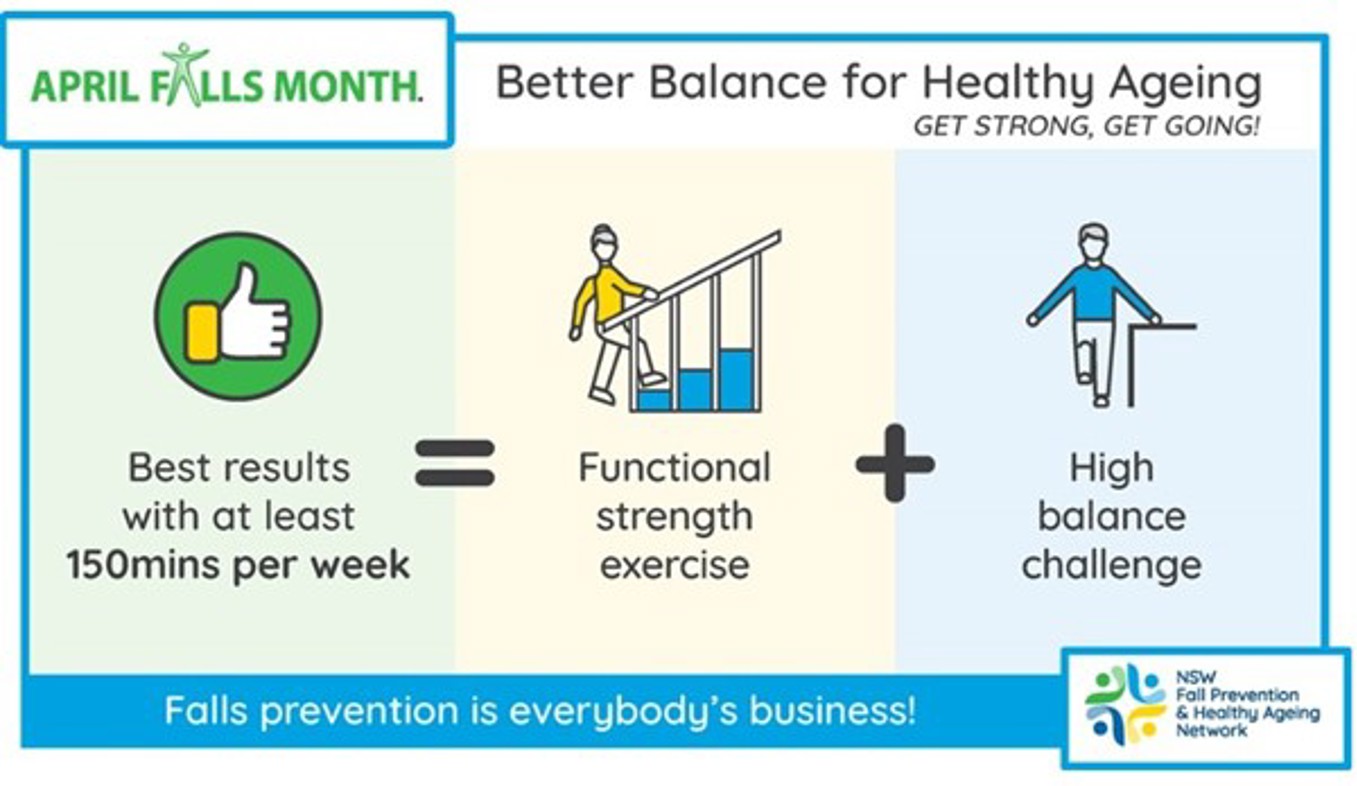April Falls Month: How a big risk for seniors can be reduced
17/04/2024

For seniors, life can change in the blink of an eye if they trip on a rug or slip on a wet floor.
Falls are the nation's leading cause of injury hospitalisation and death, representing 43% of hospitalisations from injuries sustained and 42% of deaths from the result of falls, according to the Australian Institute of Health and Welfare.
Falls requiring hospitalisation occur more frequently in adults with increasing age. Over half of hospitalisations from falls involve a fracture.
How to help prevent a fall
Better Balance for Fall Prevention is the theme of April Falls Month 2024.
The NSW Fall Prevention and Healthy Ageing Network, formerly known as the NSW Fall Prevention Network, has developed exercise manuals for residential aged care operators, stating it is never too late to get active and healthy.
Start slow and build up gradually is the advice and ask if someone can help with balance exercises.
Here are five tips to stop falls
- Mobility, Strength, and Balance: Engage in specialised exercise programs aimed at improving balance and strength. Regular physical activity, even just 2-3 hours a week, can yield remarkable benefits. Additionally, consult your General Practitioner to review medications, as certain prescriptions may impact your balance.
- Environment Matters: Conduct a thorough assessment of your living space to ensure clear pathways. Remove clutter and obstacles that pose tripping hazards. Enhance lighting in dim areas to prevent accidental falls. Invest in comfortable footwear with adequate grip to enhance stability.
- Smart Daily Habits: Consider the safest and most efficient approaches to daily tasks. Prioritise activities that minimise the risk of imbalance or falls.
- Nutrition for Strength: A balanced diet is crucial for overall health and fall prevention. Focus on consuming adequate energy and protein to preserve muscle mass. Stay hydrated, as proper hydration supports balance and general well-being. Consult your General Practitioner if nutritional concerns arise.
- Emergency Preparedness: Establish an emergency plan in case of a fall. Maintain a list of emergency contacts, including family members, neighbours, and medical professionals. Ensure easy access to a phone or wearable emergency alert device for swift assistance.
The NSW Government website Active and Healthy provides valuable information for seniors, health professionals and exercise program providers. Anyone can request a free printed copy of a booklet, Staying Active and on your Feet.














